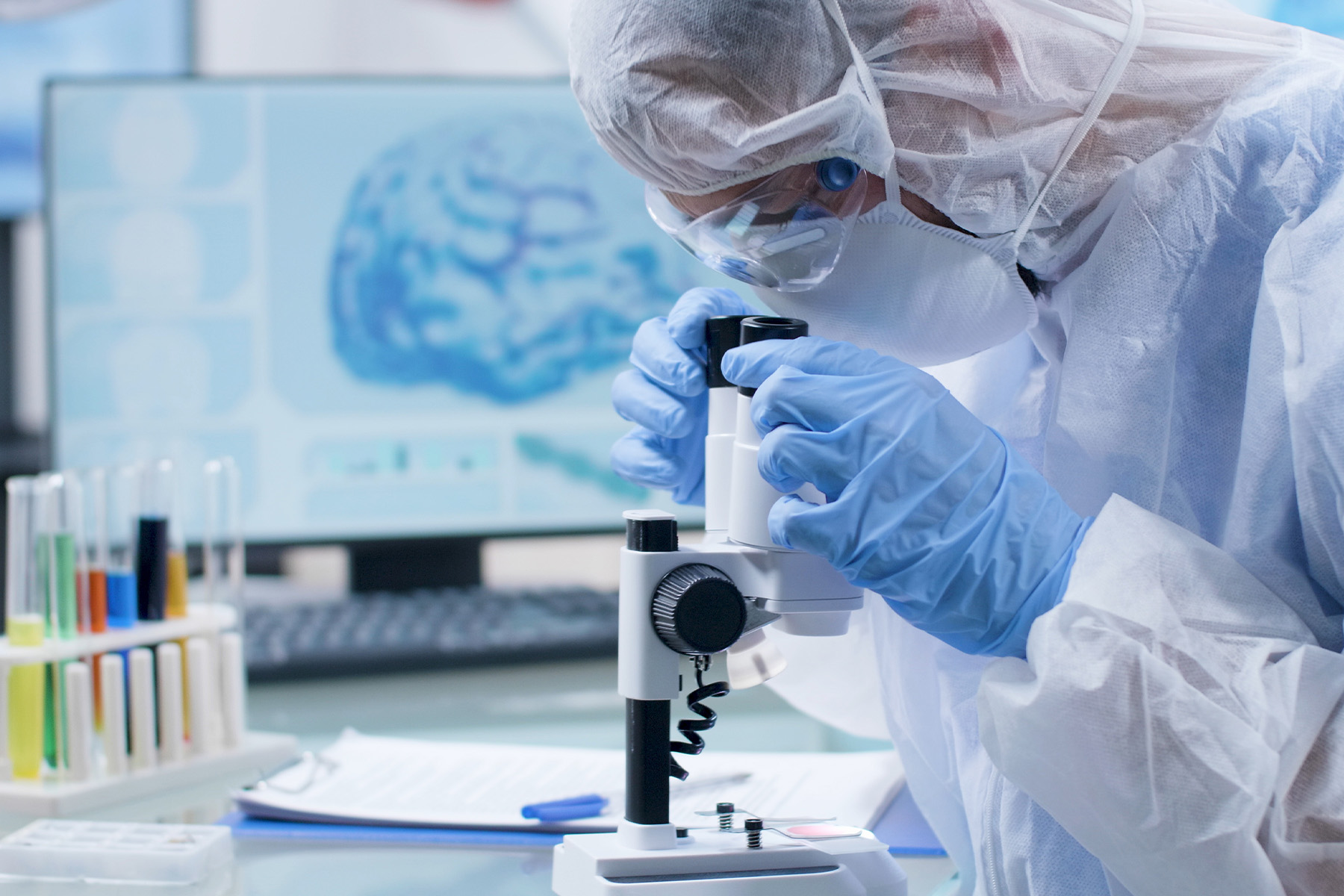Neuroimmunology of Disease Training Program

The disciplines of neuroscience and immunology are exciting and distinct fields in the biological and biomedical sciences. While these fields are traditionally taught as separate disciplines to different sets of students, it is now known that the immune system plays a central role in many neurological processes and disease mechanisms.
This means there is a critical need to prepare scientists knowledgeable in both neuroscience and immunology, and their interrelationships, so that we can better understand and treat devastating diseases such as Alzheimer’s, Parkinson’s, epilepsy, myasthenia gravis, infectious diseases of the CNS, and others.
The Neuroimmunology of Disease Training Program brings together these two interconnected fields to create scientists who will more rapidly uncover disease mechanisms and advance treatments in neurological disorders.
The Neuroimmunology of Disease Training Program partners world-renowned faculty members from across the fields of neuroscience and immunology with graduate students to tackle some of the toughest questions in neuroimmunology. The program will help you advance and optimize your dissertation research projects, create a network of colleagues across professions, and prepare for a successful career at the intersection of neuroscience and immunology.
The program trains up to five graduate students a year, who receive support from an institutional T32 training grant funded by the National Institute of Neurological Disorders and Stroke.
Students in the program will receive advanced training on top of their doctoral program requirements to better understand how the immune system interacts with the nervous system during development, infections and neurodegenerative diseases. After completing the training, you will be able to better understand, and develop treatments for, a wide variety of these neurological disorders.
The program includes a cross-disciplinary internship where you will complete a component of your thesis research in another laboratory using a different research approach and mentor. This unique feature enables you to look at the problem from a different angle, increasing the likelihood for creative breakthroughs. It also ensures you have experience working with interprofessional teams, a key component in today’s research labs.
You will also receive one-on-one support from a biostatistician to ensure that your research is well designed, correctly conducted and accurately analyzed. Plus, reoccurring workshops provide supplemental training in quantitative literacy, data analysis and rigorous research design, as well as opportunities for work-in-progress research presentations.
In addition, you will participate in clinical rotations to better understand the reality and complexity of human neurological disorders that involve the immune system — giving you first-hand knowledge that may help you create treatments that directly impact patients.
You will train under faculty across disciplines who are experts in various aspects of neuroimmunology, such as immune effects on neuronal systems biology, cell signaling, glial and neuronal biology, relevant rodent and laboratory models, and synaptic-network physiology.
Training will consist of:
- Formal courses
- Journal clubs and seminars
- Workshops on experimental design and data analysis
- Clinician shadowing
- Mentored research in two separate labs leading to a doctoral thesis and degree
Research opportunities correspond to the research projects of the training faculty. In general, this includes immune aspects of neurodegenerative and neurodevelopmental disorders, and bacterial and viral infections of the CNS.
This highly selective program, which accepts only five or six students per year, provides research opportunities with mentors in various aspects of study, including:
- Investigating the role played by glial inflammatory activities in brain disease.
- Utilizing advanced functional and structural neuroimaging to understand normal and aberrant cognitive processes.
- Studying cell signaling in the neuroimmunomodulation by drugs of abuse.
- Studying pathogenesis and immune responses elicited by Staphylococcus aureus.
- Investigating macrophage production of neurotoxic products that follow viral-infection and immune activation.
- Using non-human primate modeling of central nervous system infections.
- Using experimental paradigms to decipher the mechanisms mediating in the blood-brain barrier.
- Developing novel therapeutic strategies that may enhance neuronal function and survival in neurodegenerative diseases.
- Developing small animal models to study the pathogenesis of human-specific viral co-infection.
- Targeting cell types of the immune system to fight against HIV.
As a member of the Neuroimmunology of Disease Training Program, you'll receive financial support, including:
- Yearly stipend of $31,500
- Tuition and fees waived
- Medical insurance
- Travel funds for conference presentations on your T32-funded research
- Research supplies funding
Plus, in addition to getting real-world experience in research in two different labs, you will:
- Complete clinical shadowing to discover how your research can impact patients.
- Receive personal support from a biostatistician to learn the ins and outs of study design, data collection planning, statistical analysis and result interpretation.
- Gain transferable skills, like communication and leadership, that are crucial to success regardless of career path
- Stand out in today's competitive scientific landscape and strengthen your credibility for future training grant and fellowship funding.
- Build your CV through publications, presentations or patents.
- Network with a cohort of students, faculty members and peer advisors, forming connections for future collaborations and job opportunities.
Eligibility
The Neuroimmunology of Disease Training Program is highly competitive and trains only five graduate students each year. Candidates are typically in their second or third year of study and must be:
- PhD graduate students in good standing.
- Conducting PhD research in either neuroscience or immunology.
- US citizens or have been lawfully admitted for permanent residence (in possession of a valid Alien Registration Receipt Card, or "green card") at the time of the appointment.
Candidates must also have:
- Completed the Neuroimmunology course.
- Submitted a "cross-disciplinary internship" research project proposal to perform complementary work in another laboratory.
Application
The application period begins on July 1 of every year, with a start date in August. If you have questions about the program, please email Dr. Dan Monaghan.
Meet the Team
Directors
Daniel Monaghan, PhD
Professor, Department of Pharmacology & Experimental Neuroscience

Howard E. Gendelman, MD
Margaret R. Larson Professor of Internal Medicine and Infectious Diseases
Chair, Department of Pharmacology & Experimental Neuroscience

